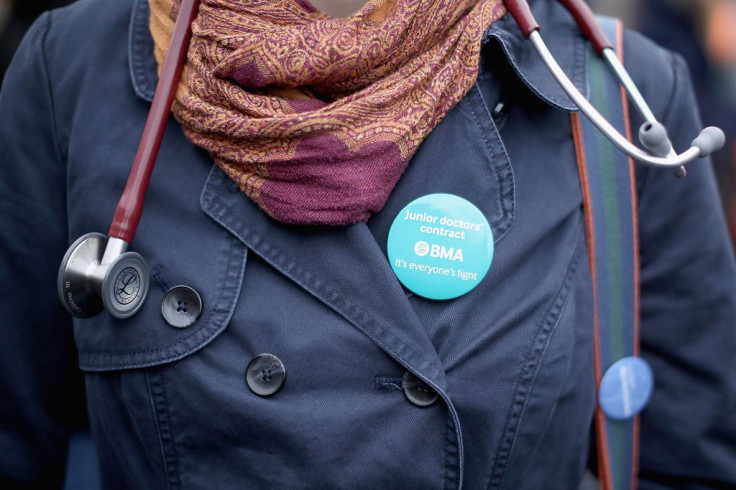National Doctor’s Day 2016: Why We Should Care About Improving Physician Health

Doctors are those with whom we place our complete trust, often relying on them in our most vulnerable moments. National Doctors Day, which occurs this year on March 30th, is meant to bring attention to the service of all physicians — living or dead — and their contribution to individual health and medical progress. But the day may also be a time to reflect on the health of doctors themselves, and how our medical system can better accommodate them. A doctor needs to be well both mentally and physically in order to make others well.
Doctor’s Day was first instated in Georgia on March 30, 1933, after Eudora Brown Almond, the wife of a physician, decided there should be a day to appreciate physicians. March 30 was a meaningful date because it was the anniversary of the first use of general anesthesia in surgery, which occurred in 1842. The first Doctor’s Day consisted of sending cards to physicians and their wives, placing flowers on the graves of deceased doctors, and having a dinner in their honor. In 1990, President Bush signed the day as a national holiday. Today, the nationwide day of appreciation can involve tokens of appreciation of any sort toward physicians, typically practiced by health care organizations.
Doctors must often shoulder the burden of the world, but rarely do we realize that doctors, too, have health issues, and learning how to tackle them can only improve patient care as well. In light of this day of appreciation, perhaps we should discuss some of the obstacles and issues plaguing physicians in the medical world — from long hours and physician burnout, to depression, substance abuse, and mental health issues that often go unchecked.
Importance Of Sleep And Preventing Burnout
Health care providers may have some of the most high-intensity, taxing jobs out there — exacerbated by long hours and double shifts, emotional stress, and staying on your feet for hours on end. As many hospitals and health care providers try to cram as many patients into one day as possible, doctors must often face an overwhelming number of patients with rarely a chance to breathe, eat, or sleep. Perhaps this is why the rates of physician burnout have increased since 2011, making it harder for doctors to truly enjoy what they’re doing. According to that study, more than half of doctors surveyed reported having some degree of burnout in 2015, which was a 10 percent increase from 2011.
Burnout typically includes physical or emotional exhaustion, feeling drained and unmotivated in work that once excited you. It may also cause physicians to feel a lower sense of accomplishment, and become more detached from their work. Of course, if we’re not preventing physician burnout, it’s going to take a toll on all patients, too.
That makes sleep all the more important. The American Thoracic Society (ATS) recently released a statement noting that sleep deprivation among physicians could pose a risk to both individual health and public safety. Finding ways to change the medical system into one that’s more accommodating for physician to get the sleep they need — as well as more reasonable working hours — could improve care for all.
Dealing With Substance Abuse
Burnout often goes hand-in-hand with depression and substance abuse, two things that are quite common in the physician population. According to a video from Healthcare Triage, a 2012 study found that 15 percent of American College of Surgeons members — and 25 percent of female surgeons — had high levels of alcohol dependence.
But because physicians are under immense pressure to maintain a strong demeanor, it may often be difficult for them to get help. Instead, they turn to self-medication, as they often have easy access to prescription drugs, according to the video. In the video, Dr. Aaron Carroll, who has experienced depression and burnout himself, notes: “Too many physicians, especially trainees, suffer in silence, afraid to ask for help for fear that they will be punished professionally, if not personally.”
Getting Mental Health Help
Most doctors who struggle with substance abuse or alcoholism also suffer from depression or other mental health issues. Again, there is a mental health stigma in the physician population that often prevents them from getting proper care.
In an essay about her own struggle with mental illness during medical school and training, Dr. Pamela Wible notes that many of the things doctors struggle with during school, residency, and actual practice include post-traumatic stress disorder, constant sleep deprivation, a huge workload, and the crushing pressure of a medical system that often cares more about money than patients. The sense of invulnerability, independence, and ruthlessness of the medical world often makes it so much harder for doctors to reach out for help. “Despite the staunch independence that prevails throughout the medical culture, I eventually realized I couldn’t deal with this on my own,” Wible wrote on the American Academy of Family Physicians website. Doctors also have some of the highest suicide rates, and medical students have rates of depression that are 15 to 30 percent higher than the general population.
On National Doctor’s Day, let’s take a moment to remember that while doctors provide immeasurable service to society, they’re not invincible — and improving care for them will better the medical system as a whole.
“The stigma is sometimes difficult to overcome, but seeking proper services not only helps us, it helps our families, our friends, and our patients,” Wible wrote. “I can’t say it enough: Please don’t hesitate to seek assistance when you need it.”



























